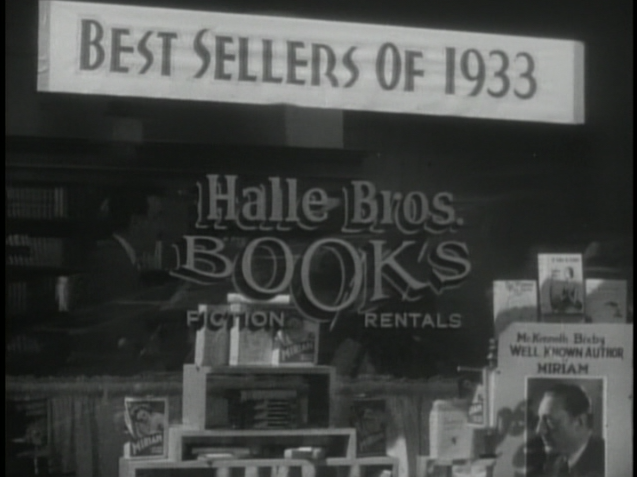Goodbye Again (1933) is a ridiculous movie that has to be seen to be believed. This film is full of outrageous antics, zippy one-liners and a love triangle so twisted it will make your head spin. When does this guy have time to write his books? It's amazing how much comedy they tried to fit in only 66 minutes. And like many Pre-Codes, Goodbye Again is infused with sexual innuendos and scenarios. Bixby and Julie have a full on affair and Anne practically lives with Bixby while they're on the road. At one point Bixby pretends to have a son and he claims that he's not married, just "bohemian". Based on a successful play by Allan Scott and George Haight, Goodbye Again was directed by Michael Curtiz for First National picture after they had merged with Warner Bros.
Warren William and Joan Blondell were two of the most dynamic on screen personalities in the Pre-Code era. This is one of five feature films they appeared in together. The others were Three on a Match (1932), Gold Diggers of 1933, Smarty (1934) and Stage Struck (1936). William and Blondell are the two biggest reasons to watch this film. William fits the bill as the remorseful playboy and Blondell is at her best as the wise-cracking and sensible dame. Tobin was a bit too over-the-top for my taste but it's what her character called for. And there wasn't nearly enough for Hugh Hubert to do.
You have to be in the mood for a zany whackadoodle film to appreciate Goodbye Again. This short screwball comedy moves so quickly that you'll have to watch it a second time to catch what you missed. In Alan K. Rode's book Michael Curtiz: A Life, he says
"Blondell was never better than in this film. She serves up smart-aleck palaver to William, who volleys it right back... Variety got it exactly right, 'Perfect for audiences of quick wit, but too slick for others.' Fortunately, there were enough clever theatergoers who appreciated this amusing picture."
Goodbye Again (1933) is available on DVD-MOD from the Warner Archive Collection and can be purchased at the WB Shop. You can hear George Feltenstein, Matt Patterson and D.W. Ferranti discuss this movie on the Warner Archive podcast. This movie makes its home video debut with this DVD release.
Warner Archive Wednesday - On (random) Wednesdays, I review one title from the Warner Archive Collection. Thank you to Warner Archive for sending me a copy of Goodbye Again (1933) to review!

























